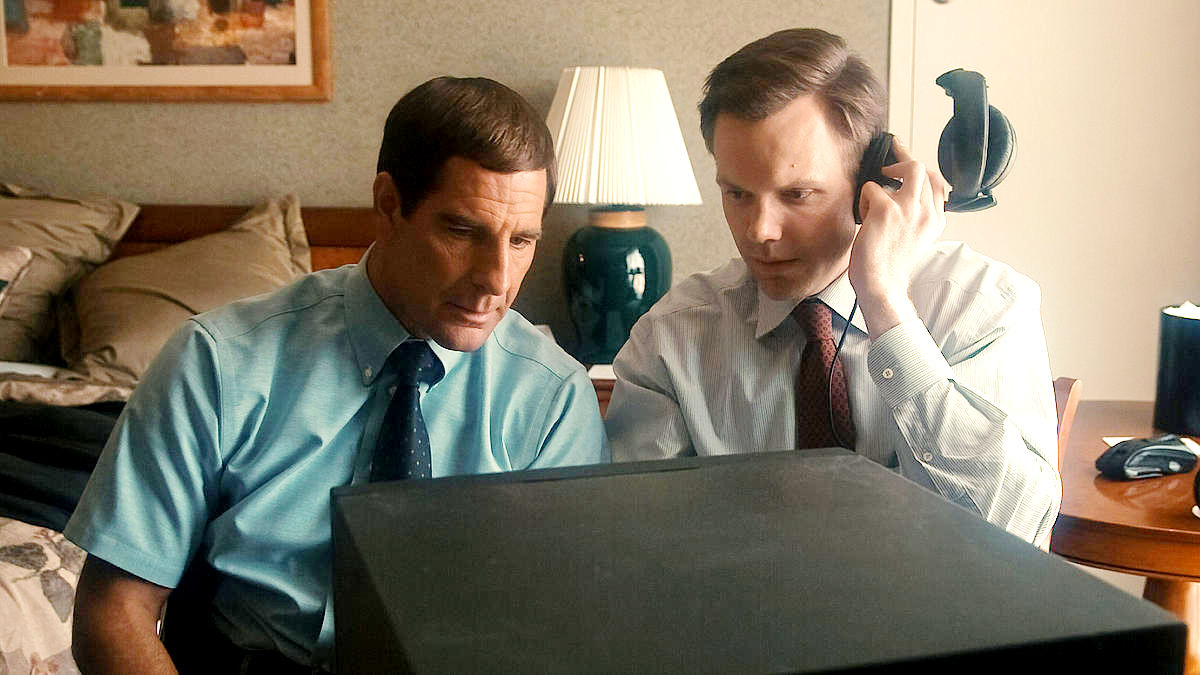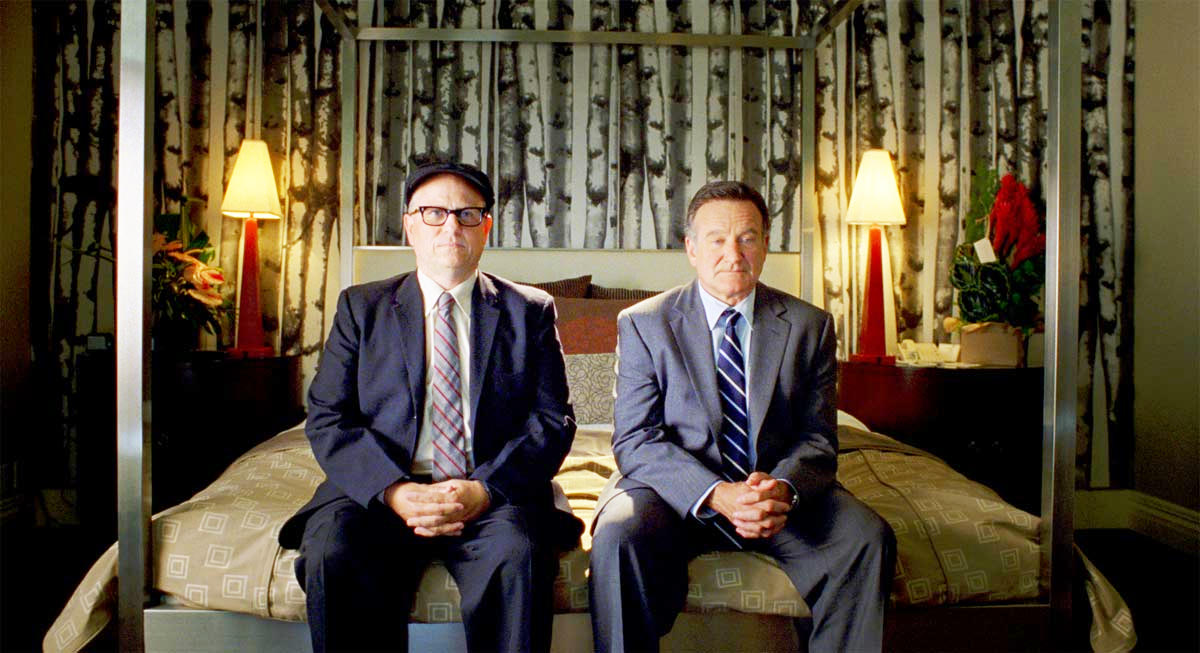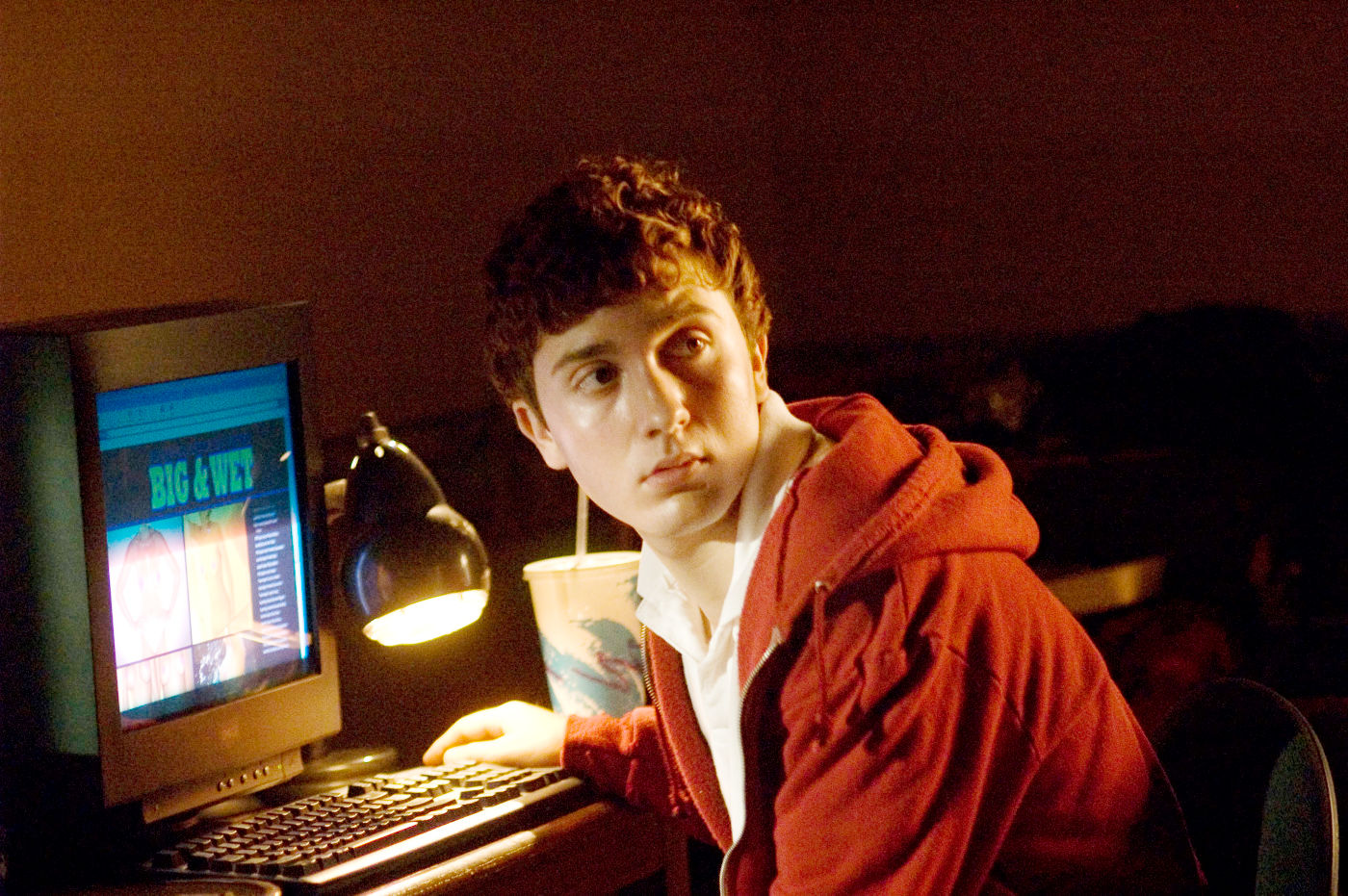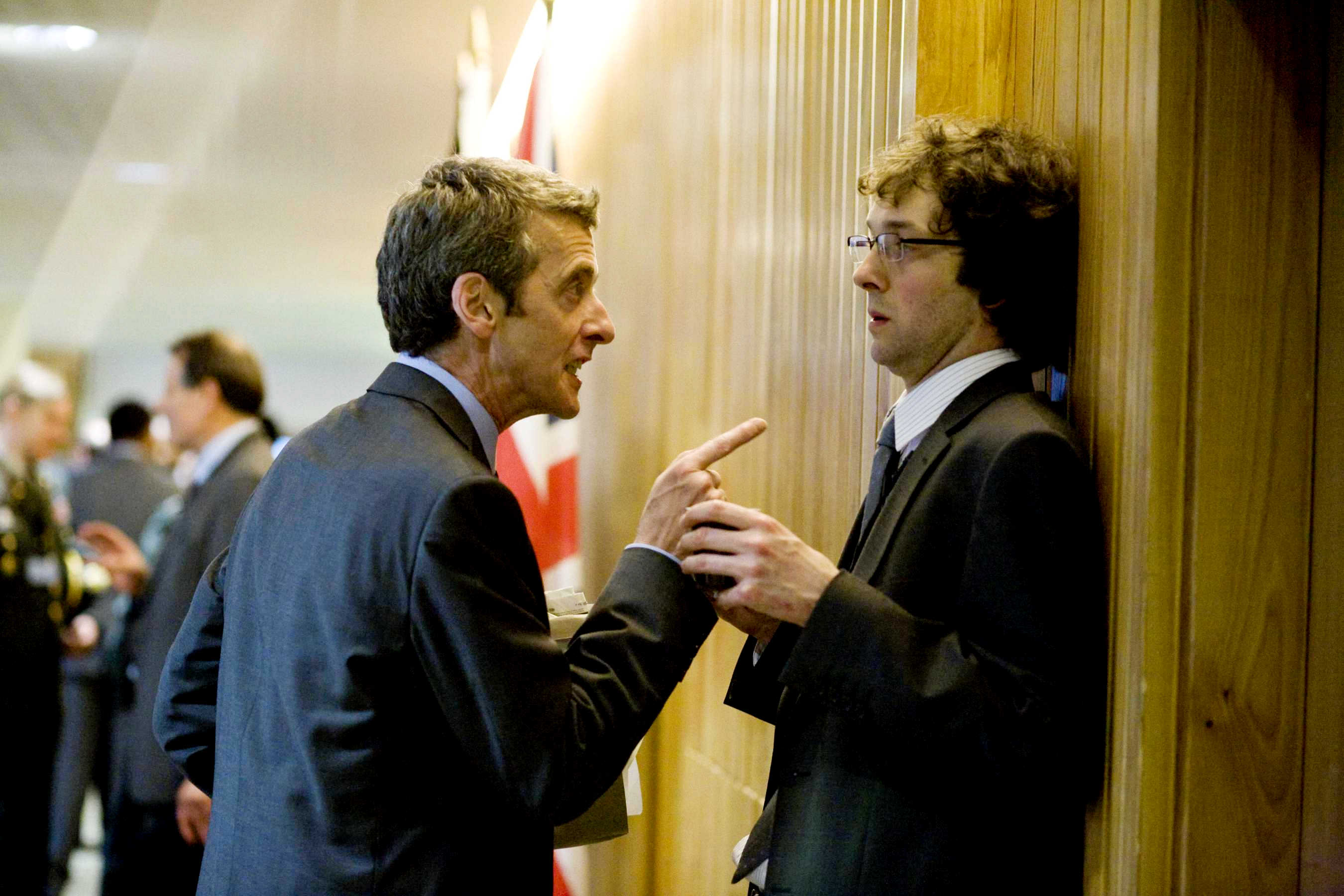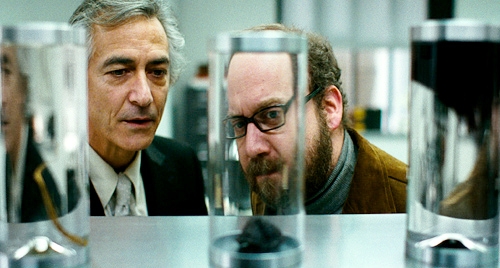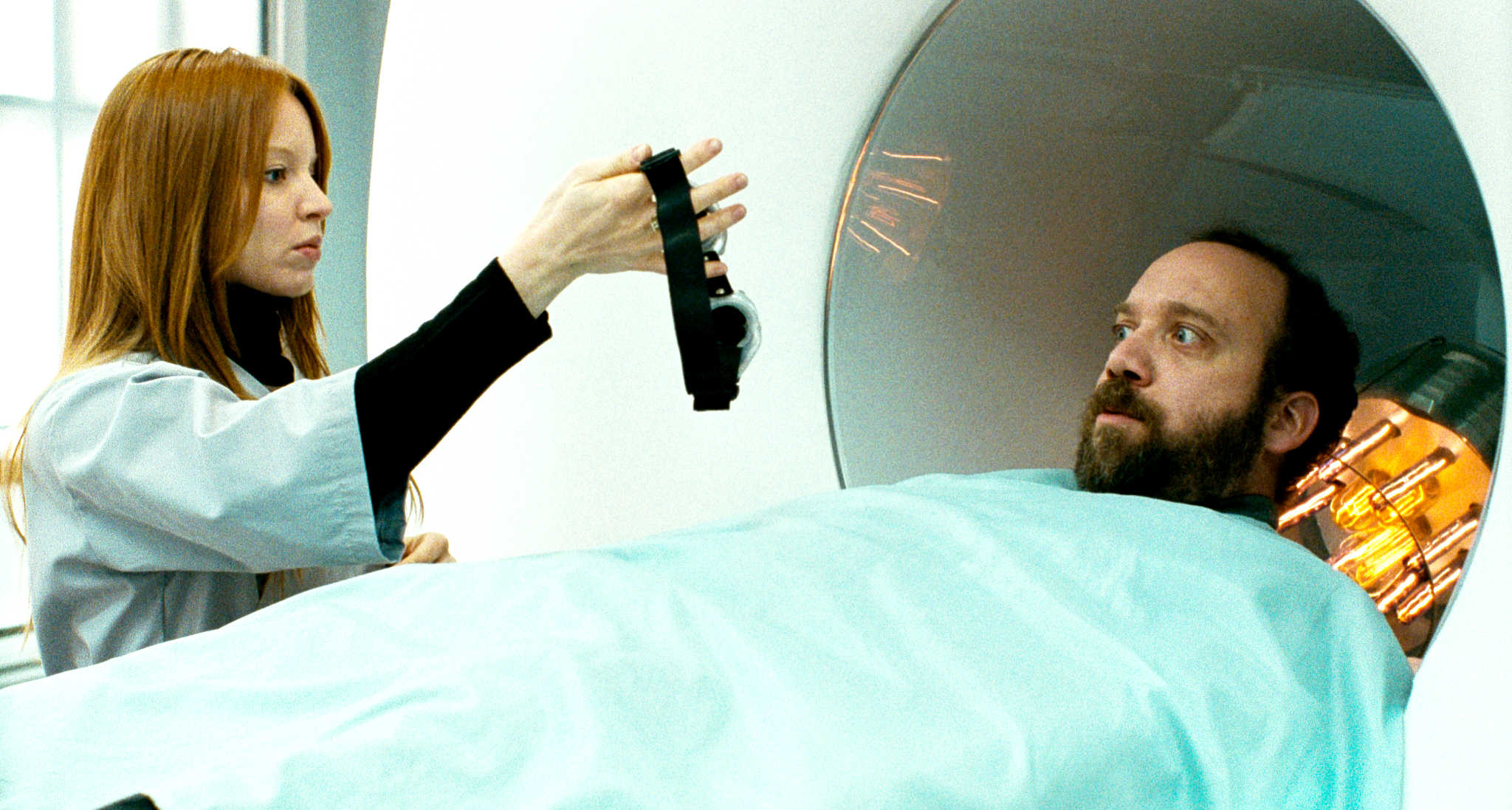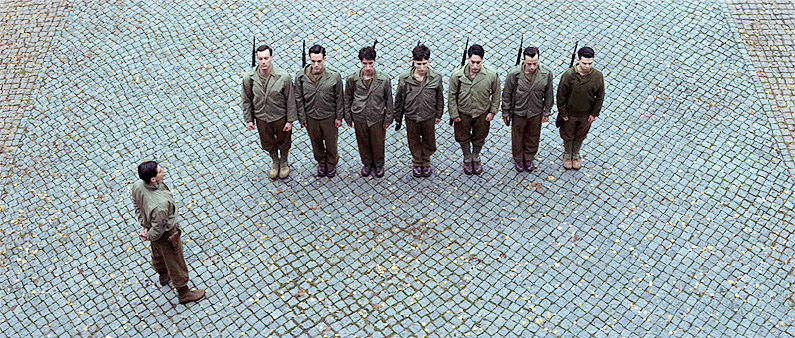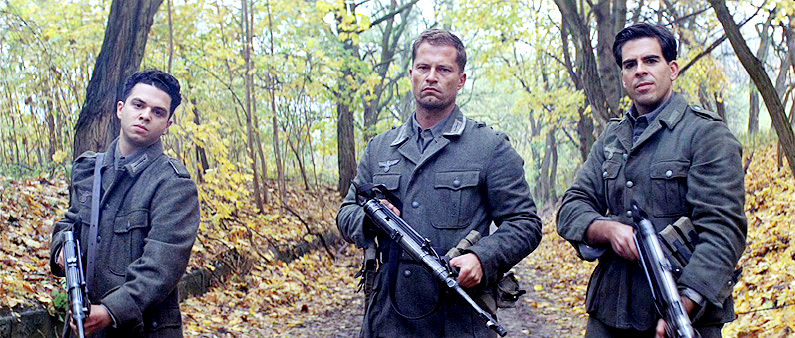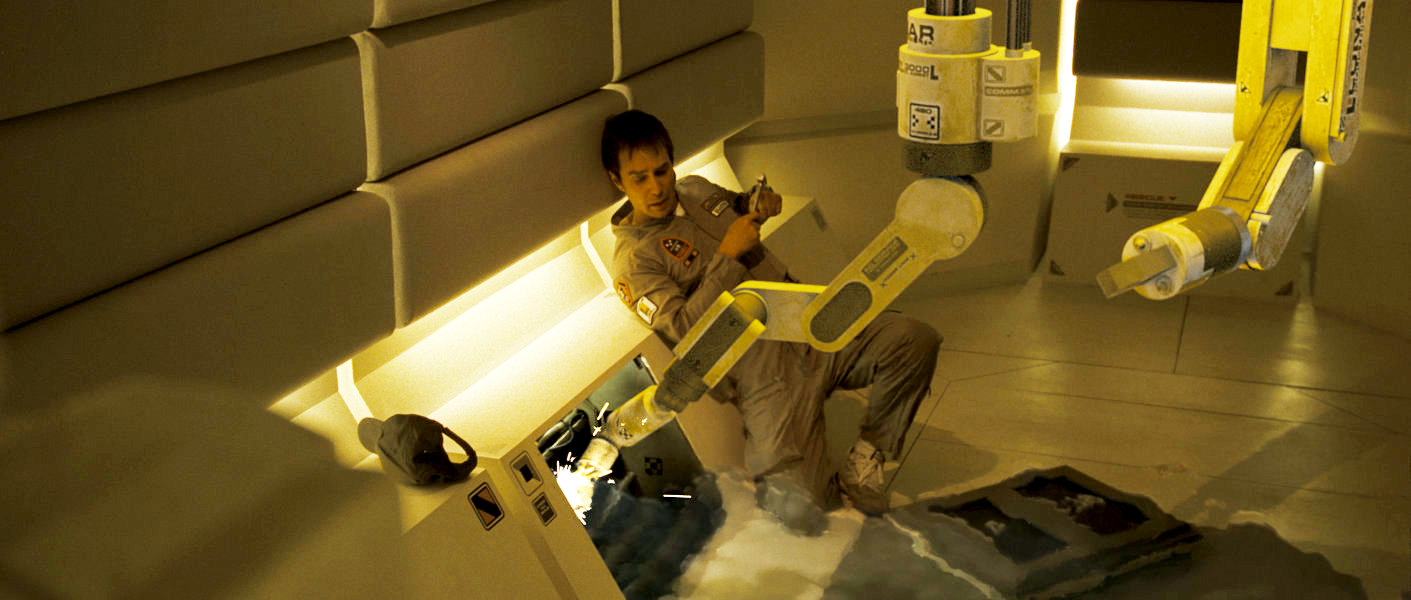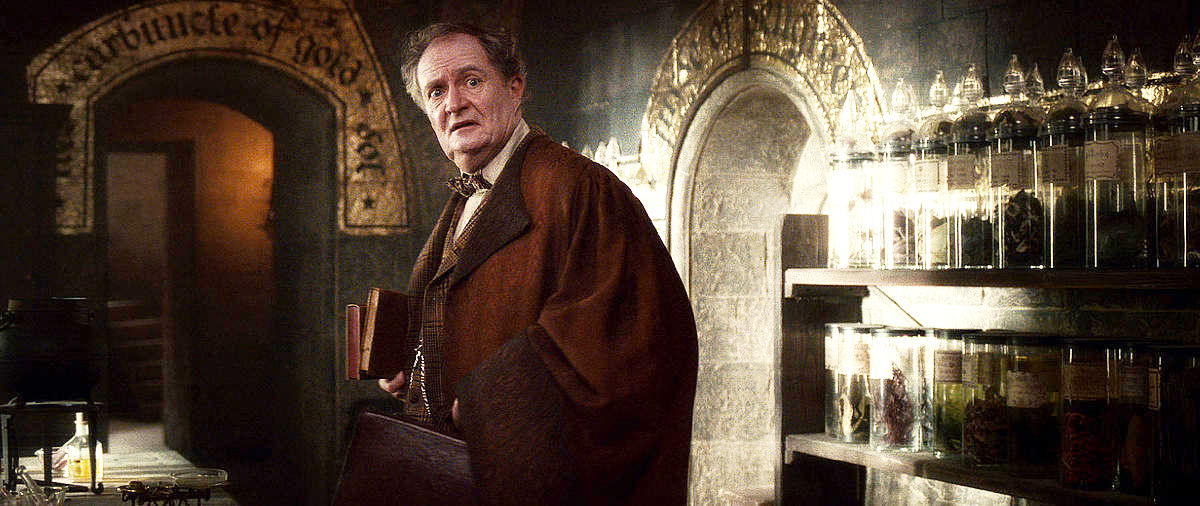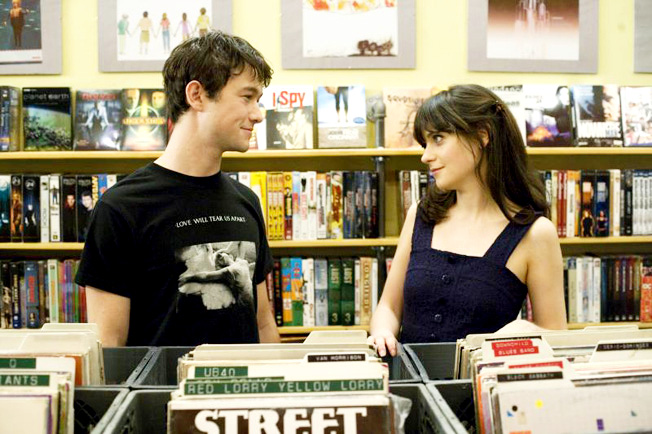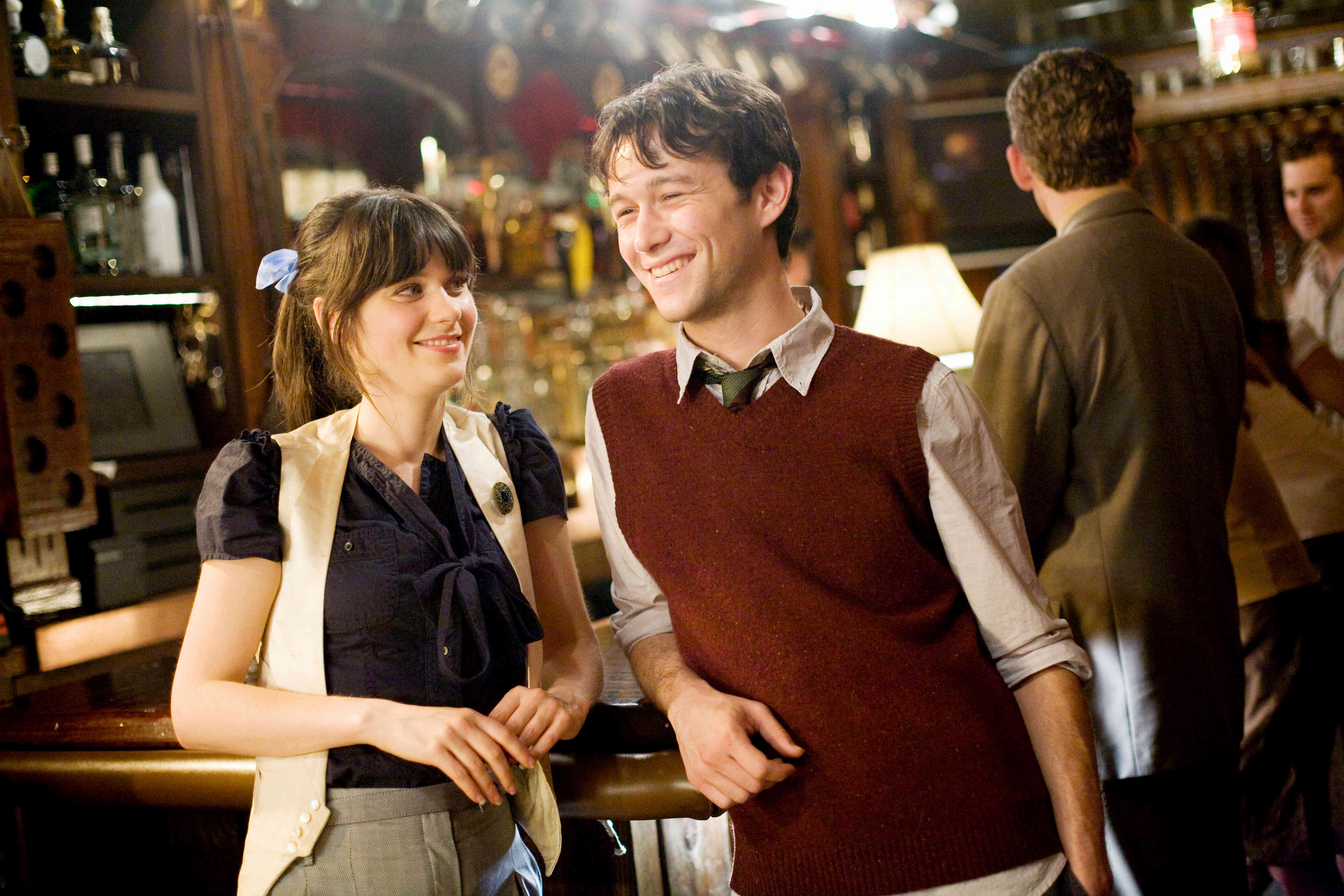
[Ugh. It seems corporate ne’er-do-wells at Archer Daniels Midland conspired to erase this whole review just as I pressed publish. Here we go again…]
Give Steven Soderbergh credit: He’s astonishingly prolific — This is his second film of the year, after The Girlfriend Experience. He’s as at home in the arthouse (Sex, Lies, & Videotape; Kafka) as he is in the multiplex (Oceans 11, 12, 13.) He’s clearly animated by an interest in politics and a strong social conscience (Traffic, K Street, Erin Brockovich, Che 1 & 2.) When he’s on, he’s really on. (The Limey, Out of Sight.) And he’s not afraid to take stylistic risks to see what comes of them. (Solaris, Full Frontal, Bubble.)
The Informant!, a strange embellishment on the real-life story of whistleblower Mark Whitacre and the ADM scandals, shares many of these Soderberghian qualities. A merging of sorts of his indie and mainstream bodies of work, The Informant! also isn’t afraid to go out on a limb and try new things. But alas, partly because of those risks, the film doesn’t really hang together, and feels more like an experiment than an entertainment. It’s not a bad movie by any means, but it sadly never really lives up to the Coenesque promise of that exclamation mark in the title. I’d say, Netflix it.
On the interesting side, Soderbergh has dolloped everything in this movie with a sickly, buttery orange-yellow sheen, as if this entire ADM-run universe has been dipped and slathered in high-fructose corn syrup. But other stylistic ventures go less well. Matt Damon’s Whitacre is saddled with an in-head voiceover — we hear what he’s thinking — that pays considerable dividends in the final act, but often results in a lot of pointless meandering on the way there. (Like all of us, Whitacre’s mind tends to wander, and he tends to go about porsches, birds, and sundry other randomness at various times.) And, in the Big Mistake department, Soderbergh has farmed out the score to 70’s maestro Marvin Hamlisch, and the incessantly perky, bells-and-horns retro sound he’s come up with feels both tonally off and is consistently distracting. It is, in a word, corny.
The thing is, it’s not entirely clear The Informant! even needed all this flair. As the film begins, Mark Whitacre (Damon) rhapsodizes to his son about the many splendiferous virtues of corn — it’s in everything, it binds us, surrounds us, permeates us. And putting it there is ADM, “Supermarket to the World,” where Whitacre works as a biochemist and the youngest vice-president in the company’s history. Life is good, profits are made, the corn flows. But the view from the top gets shaken up a bit when some Japanese competitors of ADM ostensibly try to extort the company using a lysine-eating virus. And when a friendly FBI agent (Scott Bakula) arrives on the scene to investigate this corporate crime, Whitacre — propelled by his wife (Melanie Lynskey of Heavenly Creatures) into a burst of conscience — furtively tells him of even more sordid goings-on in the ADM empire: price-fixing. Soon, with Whitacre as their Inside Man, the FBI are on the case, trying to unravel this criminal corporate conspiracy and get ADM’s Masters of the Universe to compromise themselves on tape. One big problem, tho’: Whitacre. To their dismay, the Feds soon discover that their mole — who learned everything he needed to know about espionage from Michael Crichton movies — is not only a risky asset, but a compulsive liar, one that’s been keeping some very big cards close to the vest. Sometimes, it’s not even clear if that boy is right in the head.
To play Whitacre, Matt Damon has gone through a pretty substantial physical transformation here. He’s gained thirty pounds of paunch and topped it off with a Ned Flanders moustache and a bad Shatner hairpiece. (Not that I’d advocate that he — or anybody — get on the Christian Bale method-actor binge-and-purge bandwagon, but he probably should’ve done something similar to make Robert DeNiro’s The Good Shepherd even remotely plausible.) Even notwithstanding the corn-fed “young John Bolton” look he’s taken on, however, this part suits Damon. His inherent likability dovetails nicely with the congenial aw-shucks Midwestern blandness that Whitacre uses both as a shield and a key weapon in his arsenal of misdirection.
Damon aside, one of the minor pleasures of The Informant! is getting to see a bevy of character actors play against type. (The exception being Bakula, who once again is the still, calm center of the world. Then again, few do fundamentally decent as well as Quantum Leap‘s Sam Beckett.) Joel McHale of Talk Soup — soon, no doubt, to be Joel McHale of Community — is both deadly serious and believably earnest as Bakula’s partner. The Kurgan, a.k.a. Clancy Brown, exudes a ruthless professional mien as ADM’s top corporate lawyer — It’s his intelligence, rather than his bulk, that is sinister and frightening this time. Funnyman Patton Oswalt shows up in the later-going as an FBI accountant and plays it laudably straight and dull. And, perhaps most surprising, Buster Bluth (Tony Hale) also shows up in the third act and manages to come off as hypercompetent. (No small feat — every time he appeared on screen, my brain still went “Hey brother!“)
This, I think, speaks to yet another of Soderbergh’s strengths as a director — he’s clearly good with actors, and gives them the freedom to take the same types of risks that he does. The Informant! never really coheres, true, but I’d much rather see a talented director like Soderbergh continue to stretch himself and experiment, rather than bask in his safe, tried-and-tested wheelhouse. In the end, The Informant! probably counts as an amiable misfire, but those will happen. Stil, so long as Soderbergh keeps making movies, I’ll likely keep watching them…perhaps with some ADM-enhanced popcorn on hand.
